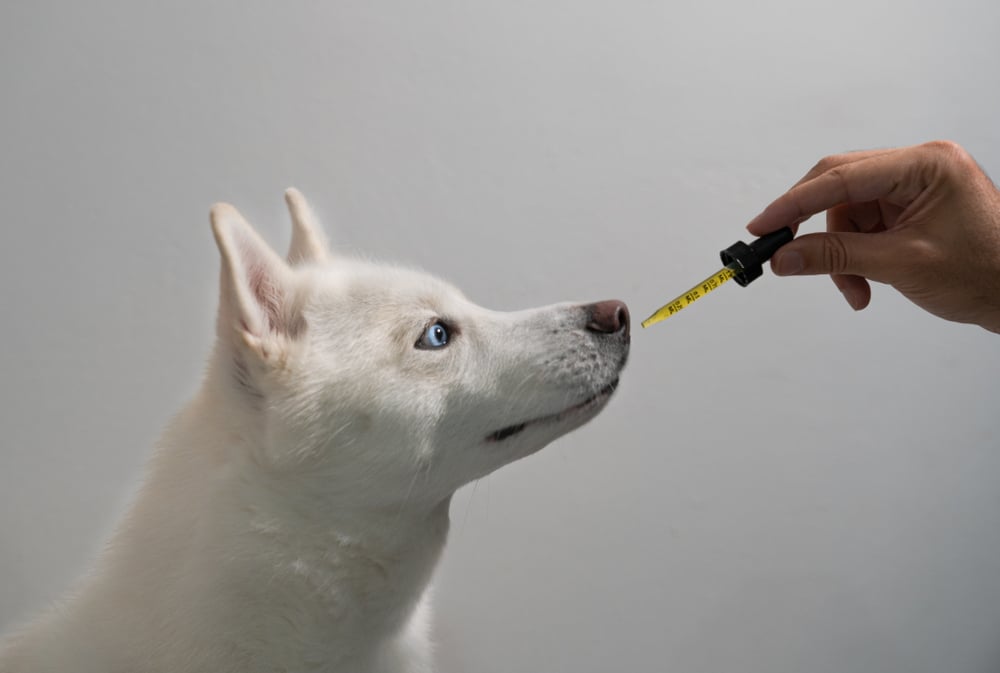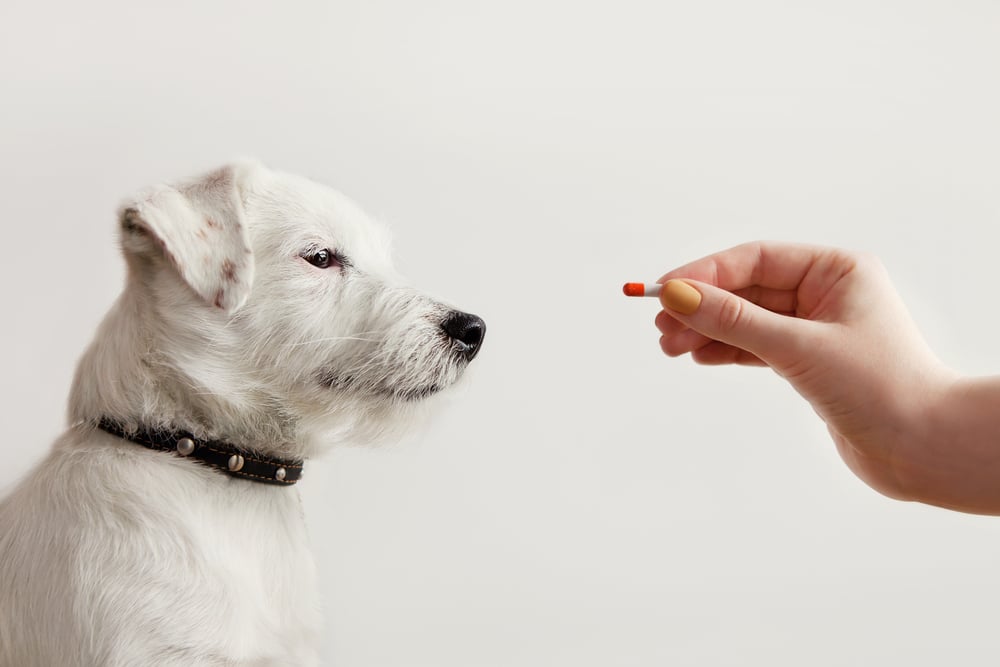 Midjourney
Midjourney
A healthy gut is the key to a healthy dog. Digestive enzymes are natural compounds that break down food so your dog can absorb the nutrients needed for energy, immunity, and well-being. When dogs struggle with digestion—whether due to age, diet, or sensitivities—they may not get the full benefit of their meals. These five natural digestive enzymes can make a noticeable difference in your dog’s health, and you can support their digestive system further with probiotic products like Pupkin Probiotics and Prebiotics with Pumpkin for Dogs (on Amazon).
Protease
 Shutterstock
Shutterstock
Protease is an essential enzyme that breaks down proteins into amino acids. Dogs need these amino acids to build muscle, support their immune system, and maintain healthy skin and fur. If your dog isn’t absorbing proteins well, they might seem low-energy or have dull coats. Protease makes sure they’re getting the full benefit of high-protein diets.
Amylase
 Shutterstock
Shutterstock
Amylase breaks down carbohydrates into simple sugars that dogs can convert into energy. It’s especially important for dogs that eat diets including grains, sweet potatoes, or legumes. Without enough amylase, your dog may experience bloating or uneven energy levels. Supplementing with this enzyme can help balance their digestion and support more consistent energy.
Lipase
 Shutterstock
Shutterstock
Lipase is key for breaking down dietary fats. Healthy fats support brain function, joint flexibility, and coat shine—but only if your dog can digest them. A lipase deficiency can lead to fatty stools and poor nutrient uptake. Ensuring your dog has enough lipase allows them to benefit from fish oils, meat fats, and plant-based oils in their diet.
Cellulase
 Shutterstock
Shutterstock
Unlike humans, dogs don’t naturally produce cellulase, the enzyme that helps break down cellulose found in plants. Since many commercial dog foods include vegetables and fibrous ingredients, cellulase is useful for unlocking the nutrients inside them. With cellulase, your dog can get more vitamins and minerals from whole food sources like pumpkin, kale, or carrots.
Bromelain and Papain
 Shutterstock
Shutterstock
These are fruit-based enzymes derived from pineapple and papaya, known for aiding protein digestion and reducing gut inflammation. They’re especially helpful for dogs with sensitive stomachs or mild food intolerances. Bromelain and papain can support digestive balance and ease gastrointestinal discomfort while improving nutrient absorption from proteins.
Digestive Enzymes
 Pixabay
Pixabay
While digestive enzymes break down food, probiotics and prebiotics help balance your dog’s gut flora for smoother digestion overall. A product like Pupkin Probiotics and Prebiotics with Pumpkin for Dogs (on Amazon) complements natural enzymes by replenishing good bacteria in the gut and adding fiber-rich pumpkin. This combination supports regular bowel movements, better nutrient absorption, and less stomach upset. It’s a smart daily addition for dogs with sensitive digestion or inconsistent stools. Disclosure: As an Amazon Associate, iHeartDogs earns from qualifying purchases.
 Toledo, United States.
Toledo, United States.
